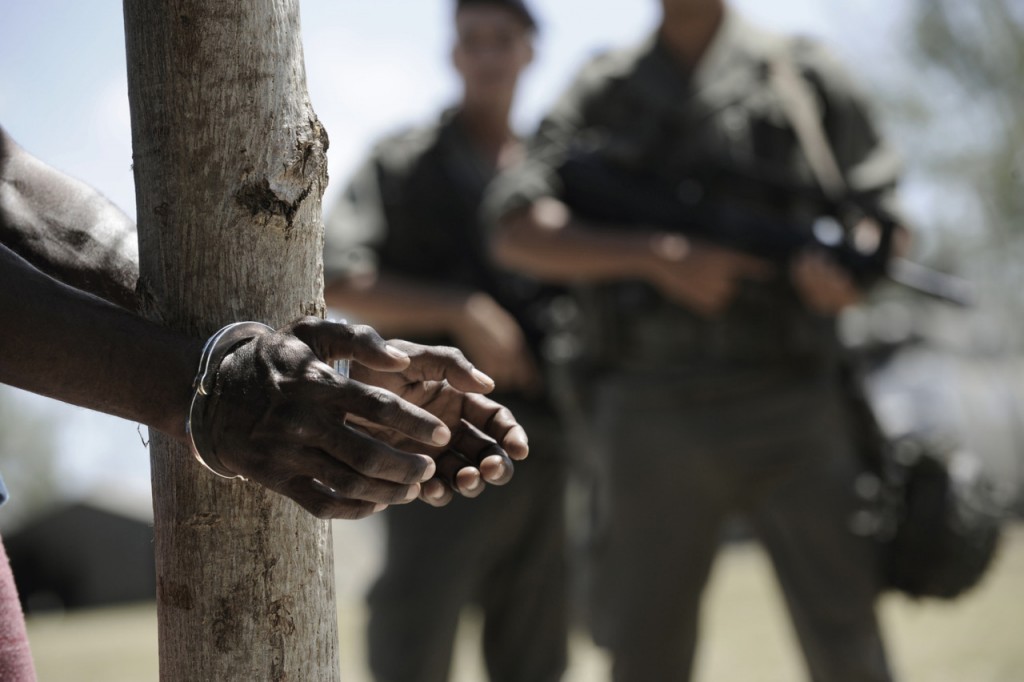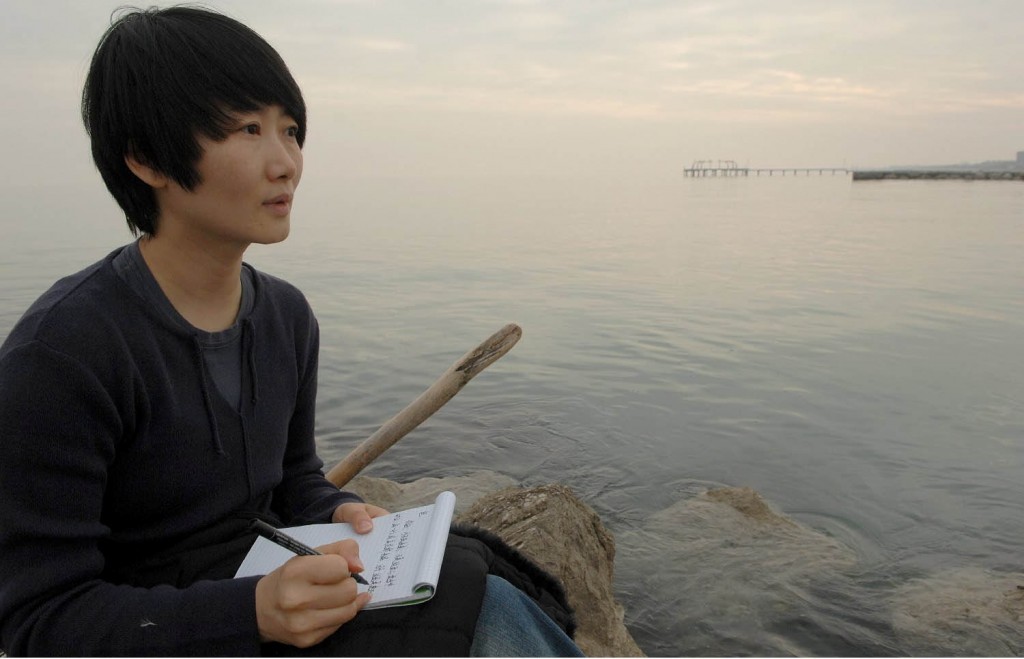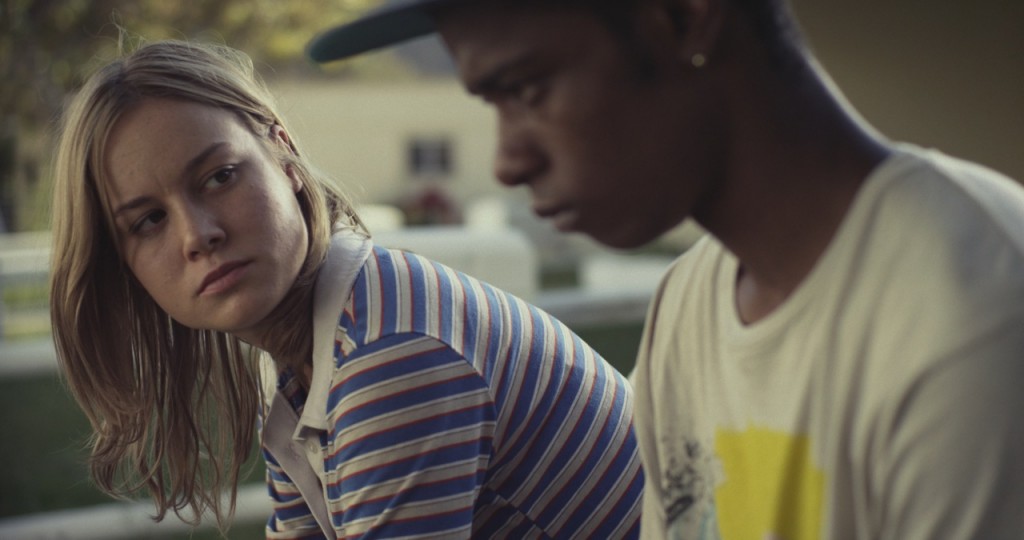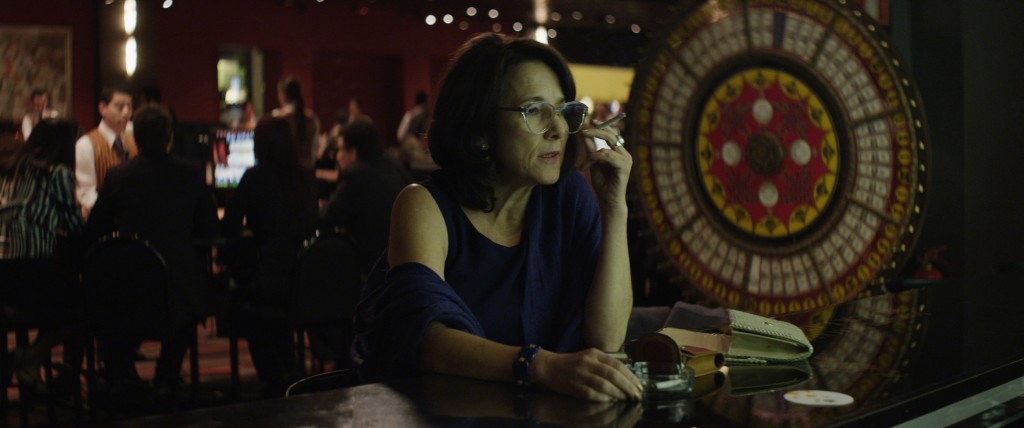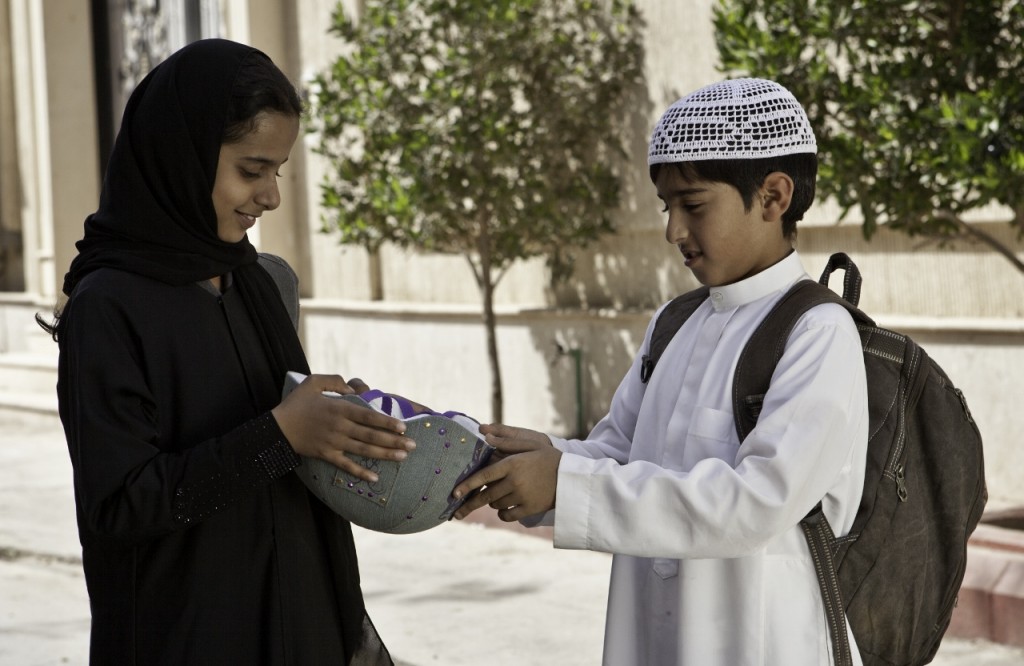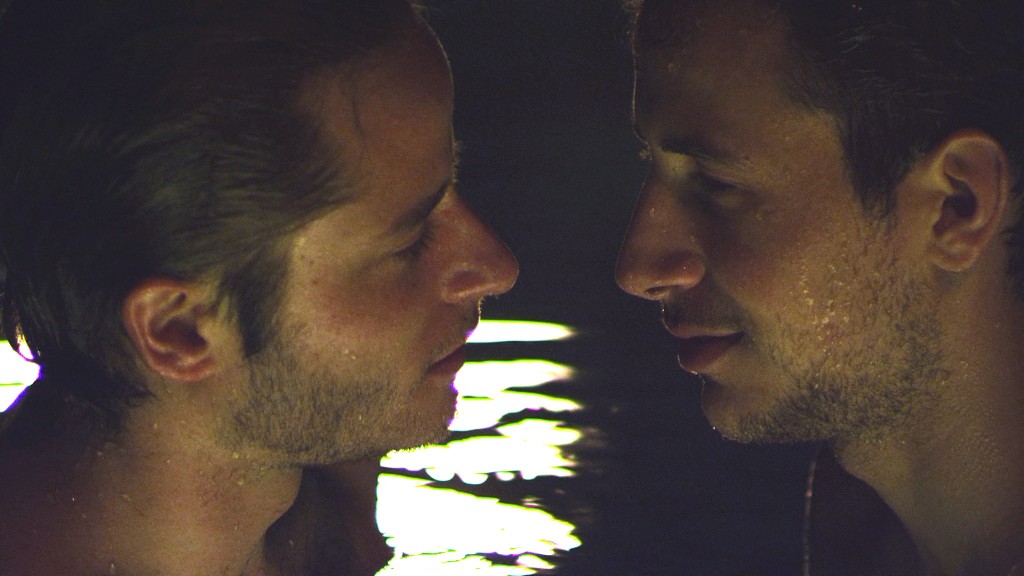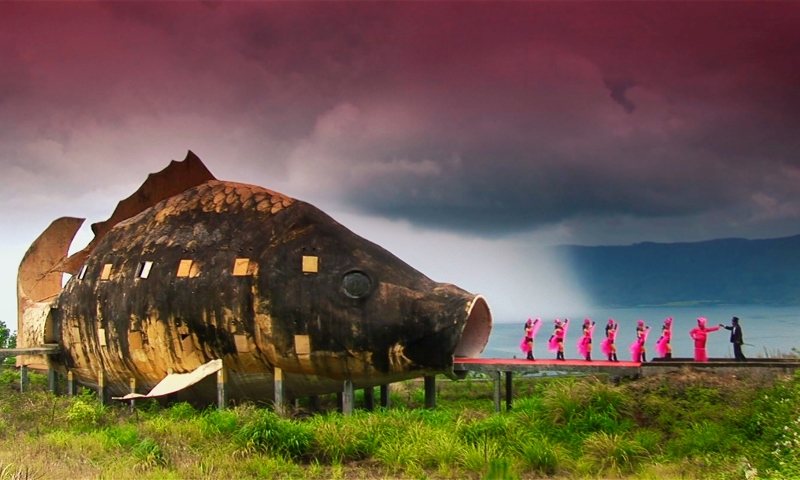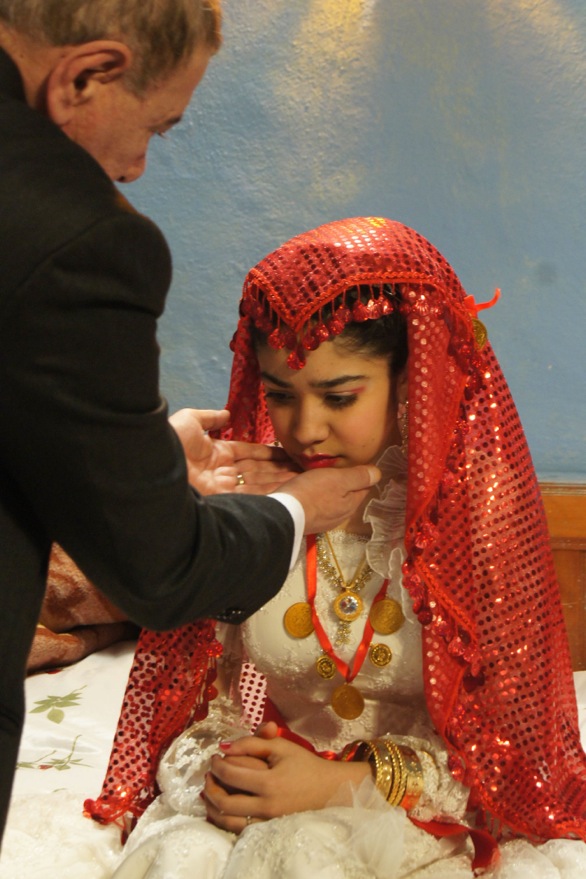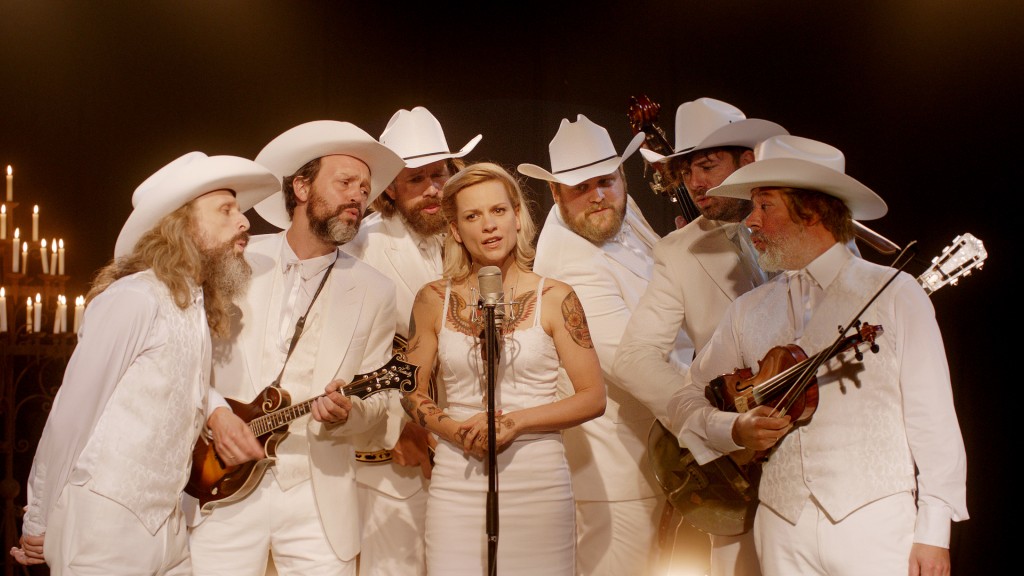An unpredictable, compassionate drama about a conflicted priest stranded at a rural retreat for teenage tearaways. Quietly provocative with an impressive, impressionistic handling of its milieu.
Poland, 2013. Language: Polish. 96 minutes. Cert: CLUB. Director: Malgorzata Szumowska. Starring: Andrzej Chyra, Mateusz Kosciukiewicz, Maja Ostascewska, Lukasz Simlat, Tomasz Schuchardt
Read more:
After an awkwardly glossy French-language venture with her Juliette Binoche starrer Elles, Polish director Malgoska Szumowska returns to home territory, and grittier material, with In the Name Of (W Imie…) an intelligent, non-judgmental drama about a committed youngish priest grappling with the urges of the flesh. The film plays against a background of recent revelations about sexual abuse in the Catholic Church, but Szumowska deals with less obviously controversial material, offering sympathetic insight into how one man’s desire might be at odds with his vocation and its requirements.
A strong lead by Andrzej Chyra gives this thoughtful, well-textured film its magnetic centre, but unfocused narrative and a tendency to edge increasingly into melodrama weaken In the Name Of considerably. Still, solid, often energetic execution style should encourage modest export success, given the film’s closeness to a prevalent model of mainstream-friendly art cinema.
The setting is a one-horse rural community, where the youngish Adam (Chyra) has been posted as resident priest in a small residential centre for young men and teenage boys from reform school backgrounds. Playing football and joining in manual work, T-shirted Adam is the modern equivalent of the no-nonsense ‘muscular priests’ once played by the likes of Spencer Tracy and Anthony Quayle. Unsurprisingly, his daily life crackles with tensions: among them, tentative sexual approaches from Ewa (Maja Ostascewska), unhappy wife of Adam’s teacher colleague Michal (Lukasz Simlat), a taciturn, somewhat undeveloped character.
Adam also has his own chequered career, and the temptations of alcohol, to contend with. But most of all, Adam is troubled by his sexuality, finding it hard to resist his increasing mutual attraction to Lukasz (aka ‘Humpty’ in English subtitles), played by Mateusz Kosciukiewicz – an attractive local who works at the centre, and whose brother Marcin, with learning difficulties, is glimpsed being tormented by local children in the film’s prologue.
Adam and Lukasz share a moment of apparently chaste ecstasy in an exuberant scene where they run wild through a cornfield making monkey noises – a sequence which teeters perilously close to the ridiculous. But the catalyst for disaster is Adrian (Schuchardt), a surly new arrival at the centre, whose own no-holds-barred sexuality sparks for one boy’s downfall and accelerates Adam’s crisis.
The film generally sticks to a pensive, introspective tenor. But Szumowska and co-writer Michal Englert (who’s also cinematographer) often find it hard to resist a more flamboyantly expressive mode, sometimes to uneasy effect – notably when Adam starts to crack up, drunkenly dancing with a picture of the Pope to a hard rock soundtrack. Chyra is a charismatically moody actor, conveying a tangible sense of emotional and spiritual depth beneath a grizzled saturnine exterior, but he’s less effective when called on to let rip emotionally, and the scene where the priest Skypes with his sister in Toronto is the film’s weakest point, veering into the outright histrionic.
The film is narratively wayward too, its disjointed narrative line playing for understatement, but often leaving us wondering where characters have disappeared to for long stretches, as Lukasz and his brother do. Some ellipses are awkwardly handled: at one moment, for example, it comes as a revelation out of the blue that one key character, whose funeral we see, has actually hanged himself.
What makes the film most impressive is the impressionistic handling of its milieu, in particular the tensions between the centre and its rural surroundings, with locals often hurling anti-semitic taunts at the boys.
Apparently improvised ensemble scenes with the teenagers bristle with energy, and Englert’s energetic camera and often luminous naturalistic photography provide a distinctive signature. Overall, In the Name Of suffers from its dramatic looseness, and doesn’t finally transcend a traditional vein of art-house melodrama. But as a humane, non-judgemental look at enduring contradictions of Catholicism and mortal sexuality, it’s a film to be admired, if not worshipped. – Jonathan Romney, Screen International
Click here to read The Guardian review.
Click here to read The Independent (UK) review.
